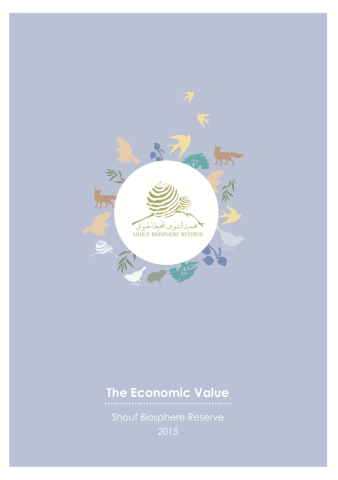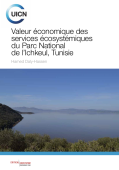
This case study, The Economic Value: Shouf Biosphere Reserve, is aiming to describe, in preliminary terms, the economic value of the Shouf Biosphere Reserve (SBR), Lebanon, by valuing carbon sequestration, fuel provision (briquettes production), water provision, food provision, tourism, and cultural services and patrimonial values. Some of these (e.g., food, water, recreation, briquettes) have economic activity linked to them which can help us value the corresponding ecosystem service. The study compiled local data to estimate the value of the economic activity associated with those services. Gross revenues and employment - not monetized - are used to value the ecosystem services related to food, water and fuel provision as well as leisure activity. The value of carbon sequestration services provided by the Reserve is estimated using a previous estimate about C sequestration potential and one of the proxies for the price of carbon.
The results show that the economic benefits generated by Shouf Biosphere Reserve every year are in the range of 16.7 to 21.3 million US dollars. Most of these benefits derive from water services including grid water quality and bottled water. The value of carbon sequestration services and production of biomass (i.e. briquettes) is also significant. Tourism injects annually an additional $700,000 in the region and supports local employment equivalent to circa 100 jobs. Whereas some of the previous ecosystem services are intangible, the economic value of tourism activities in the SBR is tangible, and growing.
The economic value of the SBR (about $19 million on average) vastly exceeds the operational budget of the SBR team (about $1 million including investment and maintenance), by a factor of 19 to 1. Stated simply, every $1 invested in the SBR returns $19 of benefits to the region and the people. Nature is priceless and by extension the SBR is priceless too.

